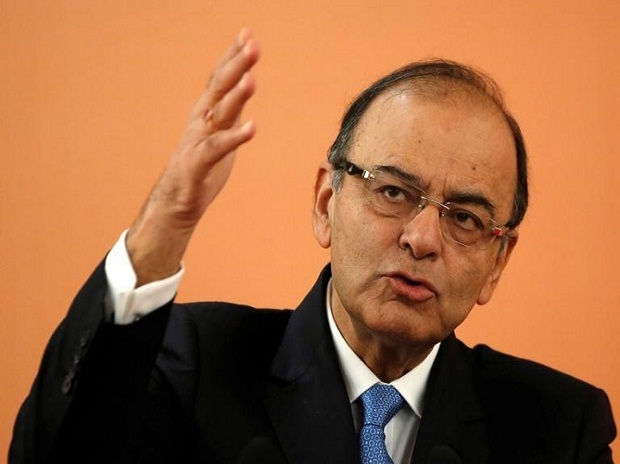Jaitley prefers cess for compensating states
Business Standard
By Arup Roychoudhury
October 27, 2016. 00:36 IST

Ahead of next week’s GST Council meeting Finance Minister Arun Jaitley said on Wednesday that he preferred levy of cess on tobacco and luxury products rather than additional tax to compensate states for loss of revenue on goods and services tax (GST) saying the cost of funding through the latter would be “exorbitantly high and almost unbearable”.
The all-powerful GST Council would be meeting on November 3 and 4 to decide on the issues of four-slab rate structure, dual control, and source of compensation. Jaitley said in a Facebook post on Wednesday that the four-slab structure of six, 12, 18 and 26 per cent was under consideration, with lower rates for essential commodities and higher bracket for luxury goods.
“Different items used by different segments of society have to be taxed differently. Otherwise, the GST would be regressive. Air conditioners and Hawai chappals cannot be taxed at the same rate. Total tax eventually collected has to be revenue-neutral. The government should not lose money necessary for expenditure nor make a windfall gain,” he wrote.
Explaining the rationale for a cess, Jaitley said if the central government has to borrow money to fund states’ compensation, it would add to its liability and increase the cost of borrowing for the Centre, state governments, and the private sector. He said that there was no rationale for increasing direct tax for this purpose. “Assuming that the compensation is Rs 50,000 crore for the first year, the total tax impact of funding the compensation through a tax would be abnormally high. A Rs 1.72 lakh crore of tax would have to be imposed for the central government to get Rs 50,000 crore in order to fund the compensation,” he said.
“Fifty per cent of the tax collected would go to the states as their GST share and of the balance 50 per cent in the hands of the central government, 42 per cent more would go to the states as devolution. So, out of every Rs 100 collected in GST, only 29 per cent remains with the Centre. The tax impact of this levy would be exorbitantly high and almost unbearable,” he said.
On the other hand, cess has the advantage that they will be subsumed in the taxes after five years. “This would include clean energy cess and cesses on luxury items and tobacco products, which in any case currently pay levy higher than 26 per cent. This would ensure no additional burden on the tax payer and yet be able to compensate the losing states,” he said.
Jaitley said if cess is levied, states which benefit out of the GST rollout don’t have to compensate the losing states. “The Centre, as a non-beneficiary, has to compensate and the proposal for continuing existing cesses for five years to the extent of compensation required is the more benign way of compensating the losing states without burdening the tax payer,” he said.
Jaitley said it has been proposed to the Council that there be a four-slab multi-rate tax structure with items constituting nearly 50 per cent of the weightage in the consumer price index basket (mainly food items) being exempted from the levy.
“There will be a zero tax on such items. The object of this is to ensure that the GST structure is not regressive or burdensome on the common man,” he said.
“The reality is that a multiple tax rate in India is inevitable for several reasons... The tax on some products in a narrow slab regime will substantially increase. This would be highly inflationary,” he said.
Describing the GST Council meetings as “excellent example of deliberative democracy”, Jaitley said that so far, all issues have been decided by a consensus.
The principal rationale behind a six, 12, 18 and 26 per cent tax structure is that items which are currently taxed at rates closer to the range of each of the slabs, will be fitted into the particular rate of the slab.
Those currently taxed below three per cent as the total tax of the Centre and the states, will be taxed at a zero rate. Those between three and nine per cent will be taxed at six per cent, those between nine and 15 per cent will be taxed at 12 per cent, and there would be a standard rate of 18 per cent, he said.